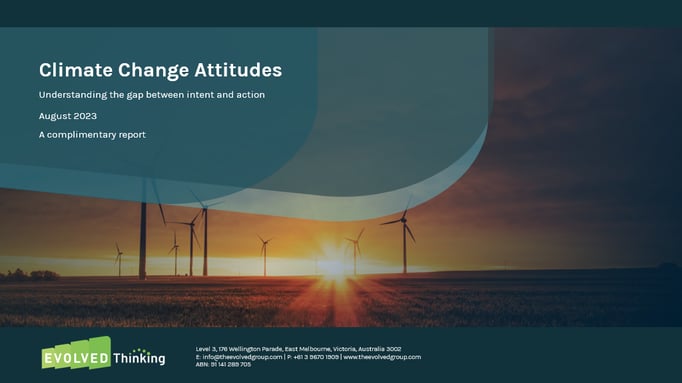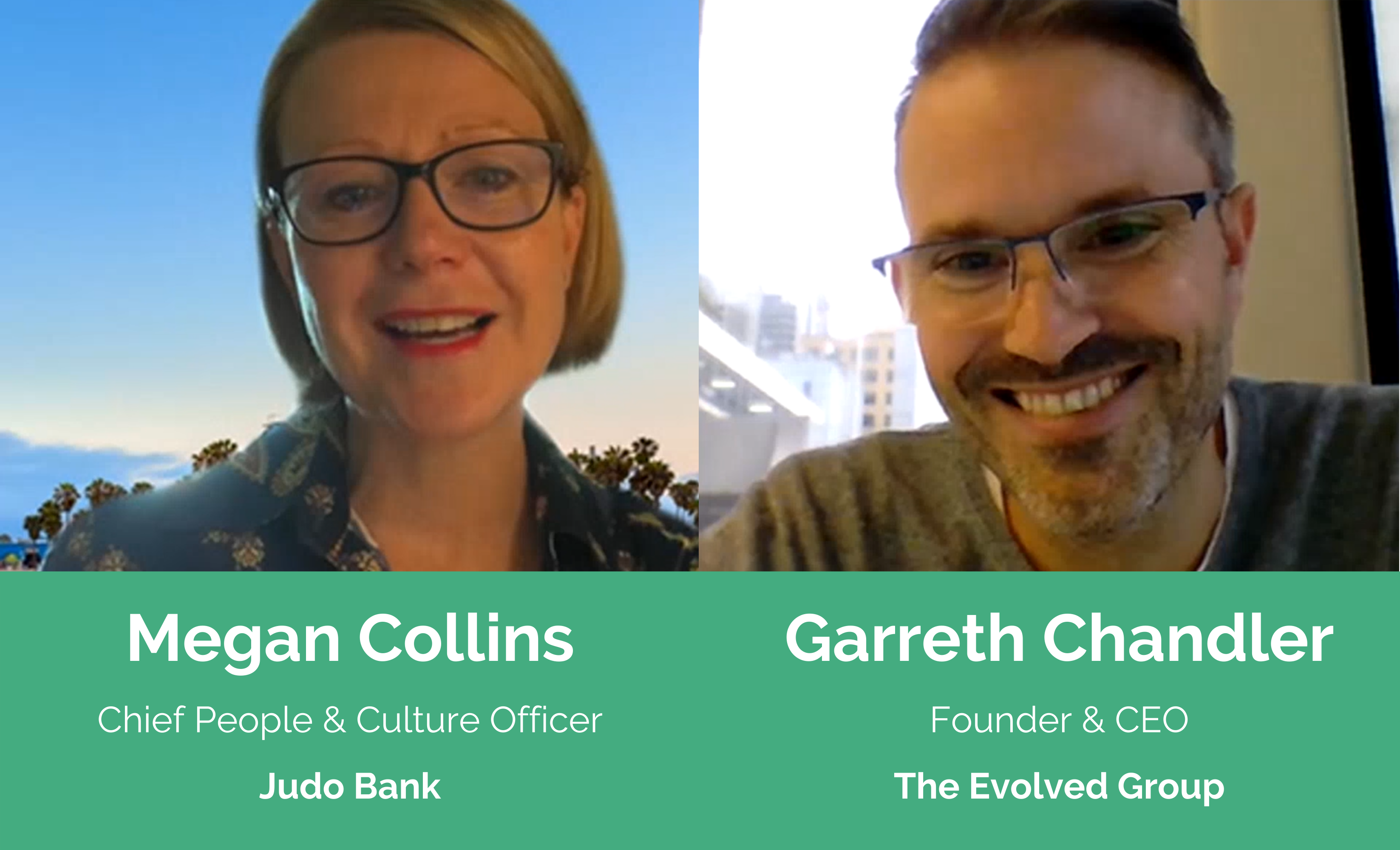Research and the climate crisis: providing clarity in times of change
Uncertainty looms large, both as an inherent part of the human condition and through complex, interdependent ‘wicked problems’ like climate change and social injustice. In this article we take a deeper and more considered look at the role research plays to help inform policy and decision making in the face of uncertainty.
Addressing challenges in the face of uncertainty requires cohesion - coordination, motivation, and planning. Achieving motivation and alignment among individuals in the face of uncertainty needs a clear understanding of three sets of actionable standards. - (1) the facts, (2) experiences (agreement on how it will impact on people) and (3) perspectives (people feel listened to).
Without these action standards, there’s a risk of overlooking opportunities due to blind spots or developing inadequate solutions based on invalid assumptions. A key benefit of undertaking market research is to provide clarity in an uncertain world. This means getting the facts, understanding experiences and acknowledging perspectives. It means understanding and appreciating the humanness of attitudes and behaviours in the face of uncertainty.
Systematic research, encompassing quantitative and qualitative data analysis, is vital for informed business strategies and optimal solutions to social problems. To illustrate these points, we wanted to explore the collective Australian mindset about climate change. Our goal is to illustrate how market research can provide insights in a pro-social context as well as help us understand the perceived action standards at three levels - individual, community and global. In short, do Australians see a need for action and who do they think should be taking action? From this insight, what are the implications for how the public and private sector approach can facilitate change?
Understanding social challenges:
Social research provides a means to understand social problems and identify the real underlying problems that must be addressed to provide positive impact. Whether tackling sustainability concerns, healthcare access, or social inequality, market research provides objective fact-based evidence; the certainty needed to develop effective strategies that address these challenges and create social change.
For example, a researcher could address mental health stigma by administering a quantitative survey to gather data on the prevalence of mental health challenges and public perceptions of mental health stigma. This could be combined with in-depth interviews to explore the personal experiences and narratives of individuals who have faced discrimination due to mental health conditions. This integrated approach enables the creation of tailored programs to address stigma.
At Evolved Thinking, as part of our Private Thoughts initiative, we have also engaged conversational-AI to collect qualitative insights at scale on issues ranging from death and dying, sexual attitudes, gut health and psycho-social safety at work.
Evaluating socially responsible products:
Consumers are becoming more attuned to being seen to do the right thing - sometimes called 'virtue signalling'. Market research can go beyond obvious responses to understand what is real (likely to drive actual behaviour) and what is just saying what they expect others to hear. Critically, the opportunity is to understand real world behaviours and their motivations, for example; variance in choice of socially responsible brands across purchase categories. When organisations can discriminate between what people say versus what they do, they can best develop solutions, products or services that have a strong bias for action.
Examples include market sizing, concept testing, unpacking brand perceptions, and identifying drivers of product choice. Getting to the real answers typically requires going deeper than just asking people to rate things. Methods that are important include trade off analysis, motivational theory and application of frameworks designed to undercover contradictions.
Validating impact and effectiveness:
For businesses committed to creating a social impact, measuring the effectiveness of their initiatives is crucial to ensure outcomes are aligned with purpose and process. Research can provide a framework for evaluating the impact of pro-social policies with meaningful KPIs and qualitative review of impact that includes impacted communities. This information enables organisations to adjust their strategies as needed, raise funds with evidence of impact, and remain motivated with clear targets for improvement.
An example of this would be reporting we’ve conducted in collaboration with Australian’s Investing in Women on the state of gender-wise giving in Australia and the drivers behind philanthropic fundraising.
Guiding marketing and communications:
There are endless examples of companies and other organisations causing harm and receiving backlash through external communications that were insensitive or inaccurate. There are even more examples of messages aiming for social good that didn’t resonate as much as they could have.
These obstacles can be anticipated by gaining a deeper comprehension of the affected communities and potential customers, as well as the messages that resonate with them. By understanding consumer perceptions and preferences and testing specific statements, organisations can develop marketing campaigns that are sensitive to societal issues and avoid practices that may be considered exploitative or harmful.
Providing certainty on Australian’s attitudes towards climate change
Climate change is a much-discussed topic in Australia, featuring in many editorials and policy conversations that are often characterised by urgency, worry, and concern for the future. However, our recent nationally representative survey of over 1,000 Australians assessing their attitudes towards climate change has revealed a more nuanced picture of Australian attitudes. It provides a different view of what is actually happening that may provide added clarity for policy, individual, and brand decision-making.
The report aims to understand Australian attitudes and behaviour related to climate change and provide valuable insights on important shifts in both. The research approach involved categorising rated statements based on non-belief and action-orientation scale.
The basis of our assessment is a framework that examines the degree of collectivism versus individualism in our attitudes towards climate change.
The relevant questions and their categorisations are included below:
How strongly do you agree or disagree with the following statements (0-10)?
Global Action index
- Climate change requires urgent collective action to avoid a disaster
- Addressing climate change is a unique opportunity to make the world a better place
- I am concerned about the impact of climate change on my children/future generations
Community Action index
- I have a personal moral duty to contribute towards reducing carbon emissions
- I am significantly more likely to contribute to an environmental cause if it directly impacts my local community
- It is important that efforts to address climate change are fair, even if there are more efficient options
Individual Action index
- I trust the claims made by brands about their climate action credentials
- I feel that I can make a difference in addressing climate change with my actions
- I know how much carbon my lifestyle produces
- I regularly experience climate-related anxiety
Scepticism
- I am sceptical of the climate change claims made by climate scientists
Brand leaders on climate
- Which brand is the one that you see doing the most to address climate change? (Open text)
Index calculations refer to the average of the means (weighted equally) for each metric within the index. This chart shows the scores on each index. Index scores are in descending scale order (global index=6.9/10, community index=6.5/10, individual index=4.7/10).

What this research is telling us
The report reveals a disconnect in climate attitudes depending on the scale of impact-orientation. The significantly lower scores in the individual index potentially indicate an external locus of control on climate change, suggesting a potential lack of personal disposition for addressing the issue.
This is notable given that it indicates messaging around personal responsibility for climate change isn’t resonating as much as communitarian, systemic, or universalist messaging. However, most respondents expressed at least moderate concern, as evidenced by their scores on other metrics, such as the climate anxiety measure. In other words, we all think action is needed, but many of us believe it is someone else that has to take that action.
Within the global index, findings show that one-third of Australians strongly align on the generalised significance of climate impacts and the actions needed to address them. Optimistic and urgent messages resonate equally strongly with this group, indicating their concern and willingness to take action. This is also notable given the weight of messaging on existential risk (Don’t Look Up, Greta Thunberg speeches etc). We can deduce that optimistic messages about making the world a better place through climate action will be effective at persuading, but not necessary galvanise action.
The results also indicate that climate change attitudes are gender-polarised on all assessed statements other than self-knowledge of carbon footprint. Men are less interested, concerned, trusting of scientists or brands, or feel equipped with self-understanding of their carbon footprint relative to women. This necessitates different strategies based on gender – one of mobilisation vs engagement.
Climate change scepticism is more prevalent amongst, men, lower socio-economic groups, and those with lower levels of education. Understanding this picture of climate change scepticism represents an opportunity to reach these individuals through a genuine understanding of who they are, what they need, and what their perspective is. This highlights the point we made above - it is not ok to dismiss these concerns nor stereotype people that are sceptical. We need to better understand why. This research does not answer that question but it does show there is resistance and where it is strongest. We will investigate further in future editions!
Brand leadership
The report also highlights the leading climate change business brands and categories. Most Australians (61%) are either unsure who the leading climate brand is (38%), or sceptical that any brands are doing enough on climate change to make a note of (23%). This suggests that there is a lot of opportunity for brands to show leadership, and demonstrate why consumer choice should be based on green credentials.
Amongst those who did nominate a brand, results indicate that automotive brands (particularly Tesla), energy and mining companies, and supermarkets (primarily Woolworths and Coles) are perceived as the leading categories in addressing climate change. It is likely that the tangibility of cars and the visibility of actions taken by supermarkets influence this perception.
We leave you with a quote from EVE™️ talking with a consumer about her day-to-day experience. It reveals much about how people are thinking about climate change in their daily life.
Eve asks: Why do you feel that way?

If you would like to access our full complimentary report, please download the PDF here.





